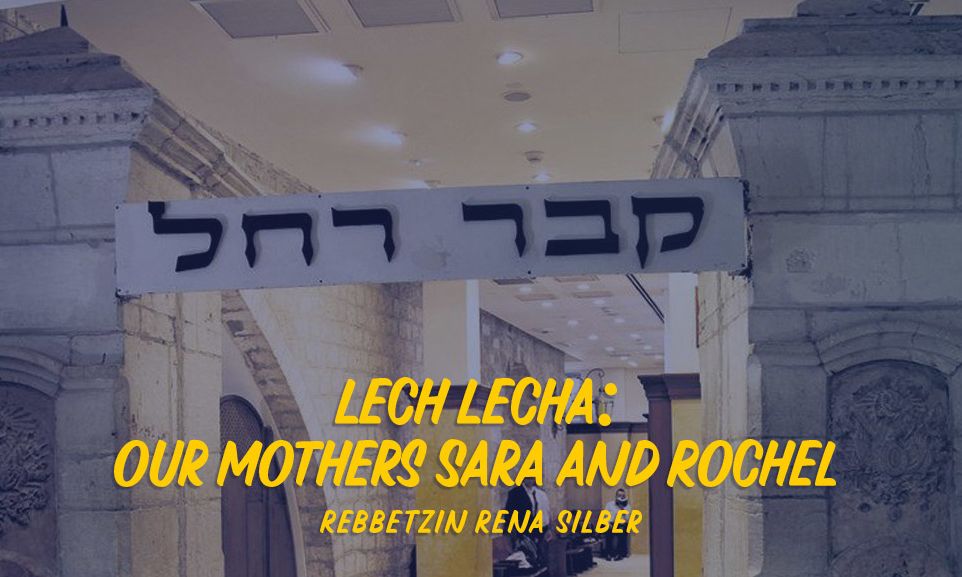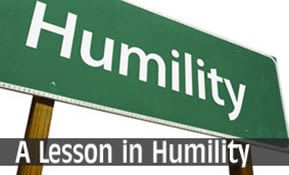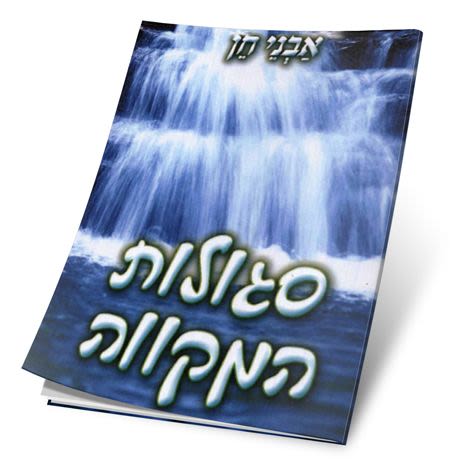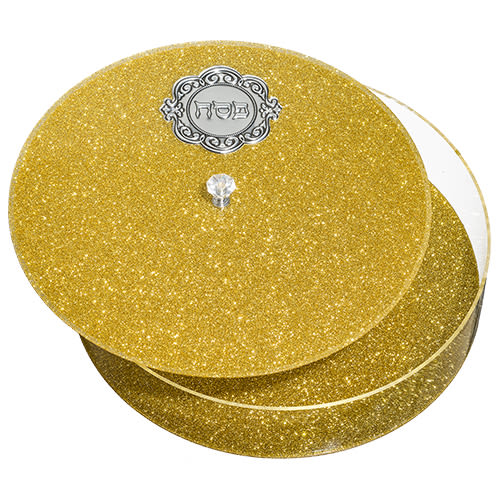
Lech Lecha: Our Mothers Sara and Rochel
The tests of Sara and the passing of Rochel both fall in Cheshvan, a quiet month that comes on the heels of the busiest month, Tishrei...

Cheshvan is a relatively quiet month. It comes on the heels of the busiest month, Tishrei. Rav Hirsch relates the name “Cheshvan” to the verb choshev – to think – teaching that we utilize this month to think about and integrate all that we did, or tried to do, in tefilla (prayer) and avoda (Divine service) during the month of Tishrei. This month is a time of great potential waiting to be actualized. The Mishkan (Tabernacle) and Beit HaMikdash (Temple) were completed in this month, but they were dedicated in the month of Nissan. The month of Cheshvan still awaits its turn – to inaugurate the third and final Beit HaMikdash. Cheshvan is empty of holidays, a kind of hollow barrenness that is waiting to be filled. This energy affects us all.
It is so appropriate that the passing of our Mother Rochel (Rachel) falls on the 11th of Cheshvan. Rochel is the paradigm of she who waits, unconsoled and uncompromising, for us, her children, to be redeemed. She lies on the path, still on her journey. Released from the shackles of her earthly body, she remains loyal to her role, the mother, crying and trying for her children. Rochel is called eim habanim semaycha – the joyous mother of children. The Midrash teaches that it was she who raised Yaakov’s (Jacob’s) children. It was her merit and her constant, unending, often grueling work with the children that molded and educated the founders of the tribes. Hers was the unending avoda of a mother, the Holy of Holies that created our nation.
Rochel and Rosh Hashanah
We read about Rochel on Rosh Hashanah. On this day she was remembered and she conceived her first son, Yosef (Joseph). On the same day, thirty years later, Yosef the tzaddik was released from prison and elevated to Viceroy over the Egyptian empire. Rav Yitzchak Ginsburgh points out that the 11th of Cheshvan, the yahrtzeit (date of passing) of Rochel, is exactly forty-one days from Rosh Hashanah, and 41 is the gematria of eim – mother. The gematria of “Rosh Hashanah”, which is equal to the gematria of “Beit HaMikdash”, is 861, the sum of all numbers from 1 to 41. This Mother of the Jewish Nation had one desire, to make the name of Hashem known throughout the world through the holiness of her children.
We are taught that the Jewish Nation is the mate, as it were, of Hashem. Our nation represents the female element of creation, which is characterized by receptivity. The nation receives from Hashem; the women of the nation represent the ultimate in this trait of receiving, and then processing and perfecting what they have received. The healthy evolution of the Jewish woman is in direct proportion the lifting of the exile and the actualization of the redemption. This is a very important principle to understand and work with.
The Power of Speech
Rochel is connected to the power of speech. The Sages teach that Hashem created the world with ten utterances. However, only nine of the ten utterances are revealed to us. The tenth utterance – actually the first – was the word “Bereishit”, which is called ma’amar satum, the ‘hidden’ or blocked word. It is a creative word, yet its power and clarity are hidden from us. Rebbe Nachman teaches that all conflict and resolution come from the ma’amar satum, the hidden world of creation and that the inability of creation to achieve perfection is, built into the very nature of creation! The fact that Hashem created the world with one hidden utterance rendered the creation imperfect. On a certain level, every person, place, and idea contains a speck of imperfection, which will only be rectified by the Mashiach.
The existential imperfection of our lives was fixed, in part, by Moshe Rabbeinu (Moses, our teacher). After the sin of the Golden Calf, Hashem wanted to destroy us and begin again, with Moshe fathering a new nation. Upon hearing this, Moshe proclaimed, Erase me from Your book. Rebbe Nachman explains: Moshe argued that according to all levels of human and angelic understanding, we are irredeemable, yet there is a place that no thing can reach or understand. It is the hidden utterance of Hashem, the ma’amar satum. There, where there is no thing, no definition, in that place, there is complete Mercy, total perfection. Moshe said, Let me go there, to the place where all is hidden. There I will affect forgiveness for the Jews. And it worked.
In the place of darkness, the place of ma’amar satum, also lies the source of our lack of understanding. It is the source of judgment as well as the source of salvation. This paradox is one of the mysteries of Kabbalah. It is the place of Rochel, who refuses to be comforted until all the veils are lifted and Hashem is completely evident.
Sara’s Tests
This week, the energy of Rochel is joined with that of Sara. The tests that Sara passed were not essentially personal in nature; they mirror the history of her children, the Jewish People. The Sages teach that Sara’s beauty was breathtaking and her modesty extraordinary. The love and unity that she and Avraham shared was almost perfect. They walked the same path on their life’s journey. She taught the women, he taught the men; they left their familiar home together; they entered Eretz Yisrael together; they went into exile in Egypt together.
The Torah relates a strange comment by Avraham when they approach the borders of Egypt. He tells his beautiful wife of many decades that he has just realized how beautiful she is, and how dangerous it will be for them because of her beauty. The plan: she is to say that she is his sister and, somehow, Hashem will protect them both from violation.
The Sages stress more than once that Avraham recognized the greatness of his wife; he saw the Shechina (Divine Presence) surrounding her, not him, with a protective aura, and he knew that she would be safe. He relied on her merit to protect him. We are taught that she understood that her test – to protect her children in that country – would come later. She stood her ground and resisted the attractions of the secular world, so that we, her children, would be able to resist and fend off those dangers to our souls. One woman, going through what she could have rationalized as her personal spiritual darkness, she could have minimized the results of failure and succumbed to the alluring gifts offered her. Instead, Sara fought like a lioness, for the sake of her children. Our spiritual genes are infused for all time with her strength and stubbornness. Her inner battle was not unlike our own. From that place of seeming void, the ma’amar satum, she emerged with the gifts of Egypt. They were given over to Avraham, and the Sages say that he held them as her trustee until she would use them in the safety of Eretz Yisrael, in the safety of the Geula (Final Redemption).
Two Tears
Winter runs from Tishrei until the end of Adar. It is the time of the Mothers. The power of Geula, the Redemption, needs to be revealed through the women. Rav Yitzchak Ginsburgh teaches that Rochel cried two primary tears. These two tears reflect her avoda, Divine service, and ours. They are about humility.
She is called ‘the small daughter,’ which hints at becoming truly small in a healthy way. One tear is over our existential smallness compared to Hashem. We need to cry and yearn to truly see and feel this. It is this feeling of helplessness without Hashem that brings us into true creative, constructive power, the power to publicize Hashem.
The second tear is over our relative smallness. Reb Zusha would say, They won’t ask me why I didn’t become Moshe Rabbeinu, but why I didn’t become Zusha. To actualize all our talents, our unique individual gifts! To be the totality of who we can be!
Time is rushing by. The Prophet says B’eeta Achishena, which means, as the Geula approaches, Hashem will speed up time. We need to make the most of every second, to fix, to do something real and meaningful. We have the power, we need to encourage one another, to praise each other’s efforts, to work together. Learning, chesed, tzedaka, another word of prayer, another attempt at an elusive mitzvah. We know that we need to love each other and finally fulfill the mitzva of V’Ahavta L’Ray’acha Kamocha – Love your neighbor as yourself. From the darkest place, from the confusion, from the ma’amar satum will come our opening and our understanding of the truth – there was never any galut (exile) at all! Hashem is always with us. May we all see this happen in the most concrete and practical ways, with the revelation of the Mashiach in the rebuilt Beit HaMikdash, in its holy place, Yerushalayim. Now!
***
Rebbetzin Silber wrote weekly articles on the Parsha Portion of the week. These have evolved into weekly audio and video shiurim, available on WhatsApp and a private YouTube channel. She is available for private counseling sessions and can be reached at KolRena@gmail.com.









Tell us what you think!
Thank you for your comment!
It will be published after approval by the Editor.